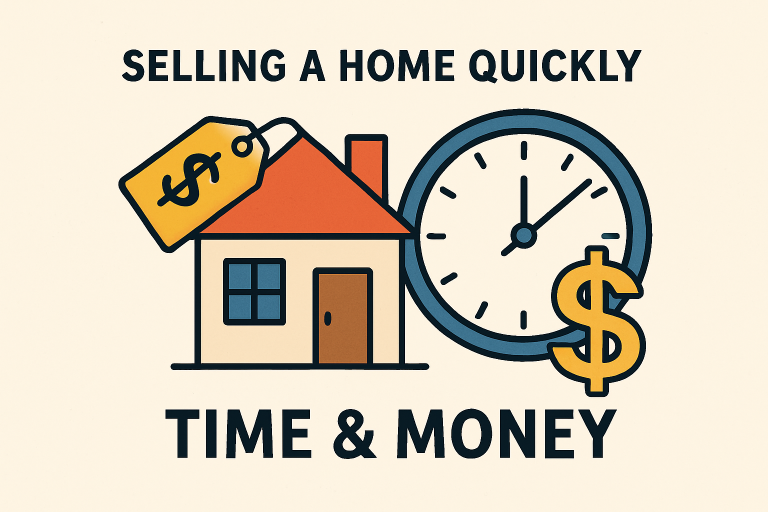Table of Contents
Understanding the Costs of Selling a Home
Selling your home is a major financial step that requires an in-depth look at all related expenses. While the opportunity for a quick sale can be enticing, it’s important to know the typical costs that might offset your potential gains. These costs include real estate agent commissions, home preparation for listing, and closing fees. The urgency to sell might reduce some ongoing costs, but sellers should carefully account for all outlays to measure potential savings accurately.
Examining these costs early allows sellers to set realistic profit expectations and motivates strategic choices about timing and selling method. Some costs, like storage or staging, might be optional or negotiable, but others—such as agent fees and transfer taxes—are unavoidable and must be factored into net proceeds.
Understanding these costs is even more critical for homeowners motivated by timelines—perhaps due to relocation, inheritance, or financial constraints. Certain services, like working with trusted buyers who purchase properties directly, may help minimize or bypass some traditional expenses, providing both speed and peace of mind in your sale.
Pros and Cons of Selling Your House Quickly
Benefits of a Fast Sale
- Immediate Access to Equity: Quick closings deliver cash faster, helping sellers settle debts or finance a new purchase without waiting months for the sale to close.
- Reduced Ongoing Expenses: When a home sells quickly, holding costs such as mortgage payments, property taxes, insurance, utilities, and maintenance are minimized.
- Less Stress: Avoiding drawn-out listing periods means fewer showings and negotiations, making the process simpler for families and individuals on tight schedules.
Potential Drawbacks
- Lower Sale Price: In exchange for speed, some buyers—particularly cash and iBuyers—may offer less than full market value.
- Missed Opportunities: Fewer days on the market can translate to fewer bids, reducing competitive offers that might drive up the price in a slower sale.
- Limited Negotiation: Time-sensitive buyers or investors typically present final offers with little room for counter-offers or contingencies.

Strategies to Sell Quickly Without Sacrificing Profit
- Set a Competitive Price: Evaluate comparable recent home sales in your neighborhood to attract buyer attention immediately. Pricing accurately can generate strong interest, even for expedited transactions.
- Enhance Curb Appeal: Simple updates like landscaping, a new front door, or exterior painting make a property more memorable and encourage brisk buyer activity.
- Professional Photography: High-quality listing photos can dramatically increase online interest and foot traffic, both essential for selling quickly.
- Flexible Showings: The easier it is for buyers’ agents to schedule tours, the more likely you will receive early and competitive offers.
These strategies can help sellers balance speed and profitability, even when market conditions fluctuate.
Alternative Selling Options
- Cash Buyers: Whether you’re facing foreclosure or just eager for a swift transaction, cash buyers enable rapid closings and often purchase properties “as-is.” While the price may be lower, the convenience and certainty can be invaluable for many.
- iBuyers: Tech-driven platforms (often called iBuyers) offer near-instant offers and handle much of the selling process for you, offering a blend of speed and ease. Sellers considering this option should compare multiple offers and service fees for best results.
Weighing the Financial Implications
Every home sale is unique. While speedy closings reduce holding costs and stress, sellers must be cautious not to undervalue their property. Carefully evaluate your need for quick liquidity against your home’s long-term value, ongoing costs, and your flexibility regarding move-out dates. Leveraging professional advice or exploring reputable direct buyers can clarify a quick sale’s impact on your bottom line.
Conclusion
Selling your house quickly can offer important savings, expedited relief, and fewer complications, especially if you work with experienced partners and plan your strategy based on your specific goals. By understanding the costs, weighing the trade-offs, and choosing your selling path carefully, you can move forward confidently—knowing that the process will be financially and personally rewarding.

